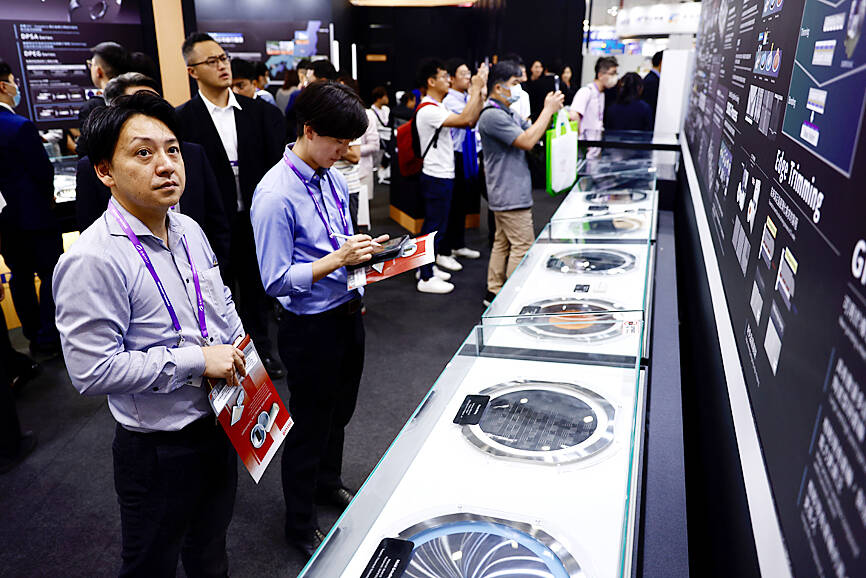TALENT FACTOR:
The nation’s chip sector would be difficult to replace, but to maintain that advantage, Taiwan must retain skilled workers, an academic said
A group of experts on Sunday called on Taiwan to strive to maintain its world-leading position in the semiconductor industry, with a US-China chip dispute expected to continue regardless of who becomes the next US president.
Tamkang University Graduate Institute of International Affairs and Strategic Studies director Li Da-jung (李大中) said at a Taipei seminar on global semiconductor security that the relationship between the two superpowers would remain confrontational.
There appears to be “no turning back” in US-China relations, as US presidential candidates US Vice President Kamala Harris and former US president Donald Trump are both expected to continue Washington’s hawkish stance against Beijing, including by continuing restrictions on China’s access to semiconductor technology, Li said.

Photo: Ritchie B. Tongo, EPA-EFE
Speaking during the same event, Tamkang University Graduate Institute of International Affairs and Strategic Studies assistant professor Lin Ying-yu (林穎佑) said that despite the increasing state support China’s semiconductor industry has received in the past few years, it would still be a long time before it caught up with the US in terms of advanced chip development.
Whether China could continue its efforts in developing advanced semiconductors remained uncertain, because Beijing could soon withdraw the sector’s subsidy, he said, without elaborating.
“That could mean more opportunities for Taiwanese semiconductor businesses,” Lin said.
James Yang (楊健盟) — founder of Hsinchu City-based Microip Inc (擷發科技), which provides IC design services and chip performance analysis — said at the seminar that Taiwan’s semiconductor ecosystem has developed over the past 40 years and would be difficult to replace any time soon.
Taiwan’s advantage lies not just in a few companies, but in the entire industry cluster in Hsinchu Science Park (新竹科學園區), along with the supporting talent ecosystem drawn from nearby National Tsing Hua University, National Yang Ming Chiao Tung University and the Industrial Technology Research Institute, he said.
Taiwan needs to maintain the competitiveness of its semiconductor industry amid the ongoing US-China chip dispute and other geopolitical realities, he said.
As countries compete to build their own semiconductor industries, Taiwan’s public and private sectors need to work to maintain the nation’s edge, particularly in retaining talent, he added.